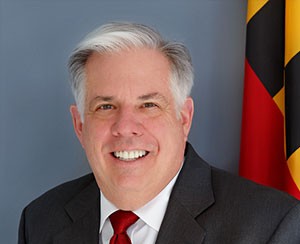
Governor Larry Hogan Announces Review of Legal and Regulatory Barriers to Re-Entry After Time in Prison (PHOTO)
 Maryland Governor Larry Hogan announced an multi-agency initiative headed by the Governor’s Office of Crime Control and Prevention to extensively review the legal and regulatory barriers that individuals with a criminal record face when re-entering the community following time in prison.
Maryland Governor Larry Hogan announced an multi-agency initiative headed by the Governor’s Office of Crime Control and Prevention to extensively review the legal and regulatory barriers that individuals with a criminal record face when re-entering the community following time in prison.
According to a news release, individuals with a criminal record and who have spent time in prison face many legal and regulatory penalties, sanctions, and restrictions known as collateral consequences, on top of penalties imposed at sentencing.
“These consequences have a lasting impact, making it more difficult for ex-offenders to re-enter society, find a job, and fully engage in the community,” Governor Hogan said. “We took an important step to expand employment opportunities with the Second Chance Act, but there are continued obstacles to re-entry that demand a thorough review.”
The Second Chance Act, signed by Governor Hogan and effective on Oct. 1, 2015, works to address the issue of allowing those convicted of certain nonviolent crimes to petition the court to shield their record three years after completing any mandatory supervisory obligations.
“I look forward to collaborating with stakeholders across Maryland to determine whether certain restrictions on ex-offenders can be more narrowly tailored or eliminated altogether without jeopardizing public safety,” Christopher Shank, executive director of the Governor’s Office of Crime Control and Prevention said.
The review will build on the work of the Justice Reinvestment Coordinating Council. The group’s purpose is to develop recommendations to decrease the State’s prison population, reduce recidivism, and control correctional spending.
The Governor’s Office of Crime Control & Prevention will appoint a work group comprised of state agencies in the review. The agencies will include the Departments of Public Safety and Correctional Services and Labor, and others, as well as nonprofits, advocacy groups, ex-offenders, and the business community. The work group will gather information about the impact of collateral consequences, research possible reforms, and create recommendations on the issue. The study will result in recommendations to Governor Hogan by Dec. 1, 2016.

Engage us on Facebook
Follow us on Twitter
Tweets by @mymcmedia